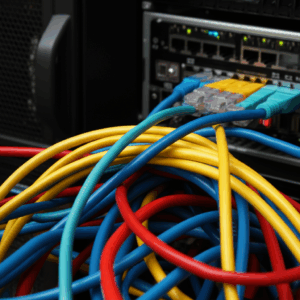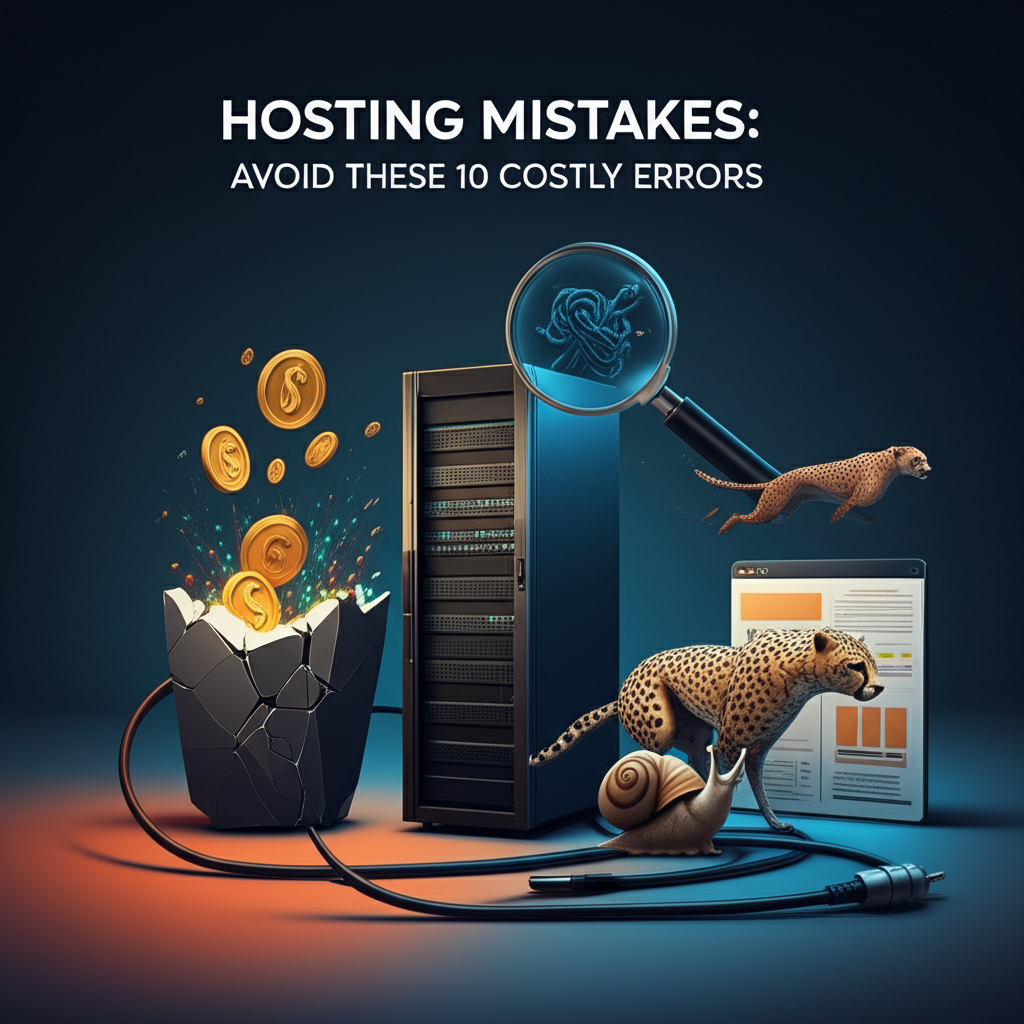- Common Hosting Mistakes That Can Cost You Dearly
- 1. Choosing the Wrong Hosting Plan
- 2. Neglecting Website Security
- 3. Ignoring Website Backups
- 4. Overlooking Server Resources
- 5. Poor Website Optimization
- 6. Not Utilizing a Content Delivery Network (CDN)
- 7. Failing to Monitor Website Performance
- 8. Ignoring Customer Support
- 9. Not Reading the Fine Print
- 10. Sticking with a Bad Host
- Avoiding Hosting Mistakes: A Path to Online Success
Hosting Mistakes: Avoid These 10 Costly Errors
Hosting mistakes can turn your online dreams into a nightmare. From slow loading times and security breaches to lost revenue and damaged reputation, the wrong hosting choices can have devastating consequences. Choosing the right hosting provider and configuring your setup correctly is critical for the success of any website or online project. This article will guide you through ten common hosting mistakes and offer practical advice on how to avoid them.
Common Hosting Mistakes That Can Cost You Dearly

Falling prey to these common pitfalls can lead to significant setbacks. Understanding them is the first step towards building a robust and successful online presence.
1. Choosing the Wrong Hosting Plan
One of the most fundamental hosting mistakes is selecting an unsuitable hosting plan. Opting for a shared hosting plan when you anticipate high traffic can lead to slow loading times and a poor user experience. Conversely, investing in a dedicated server when your website is just starting might be an unnecessary expense. Carefully analyze your website’s needs, considering factors like traffic volume, resource requirements, and scalability, before choosing a plan.
2. Neglecting Website Security
Security breaches can cripple your website, compromise user data, and damage your reputation. Failing to implement robust security measures is a grave hosting mistake. Ensure your hosting provider offers features like SSL certificates, firewalls, and malware scanning. Regularly update your website’s software and plugins to patch security vulnerabilities. Consider implementing two-factor authentication and other security protocols to enhance protection.
3. Ignoring Website Backups
Data loss can be catastrophic. Not having regular backups is a hosting mistake that can leave you scrambling to recover your website in case of a server crash, hacking incident, or accidental deletion. Choose a hosting provider that offers automated backups and ensure you have a reliable backup strategy in place. Regularly test your backups to ensure they are functioning correctly and can be restored effectively.
4. Overlooking Server Resources
Monitor your server resources closely. Exceeding your allocated resources can lead to website downtime and performance issues. Use website analytics tools to track your website’s resource usage and identify potential bottlenecks. If you consistently exceed your limits, consider upgrading to a higher-tier plan with more resources.
5. Poor Website Optimization
Even with a robust hosting plan, a poorly optimized website can suffer from slow loading times. Large image files, unoptimized code, and excessive HTTP requests can negatively impact performance. Optimize your images, minify your CSS and JavaScript files, and leverage browser caching to improve website speed.
6. Not Utilizing a Content Delivery Network (CDN)
A CDN can significantly improve website performance, especially for users geographically distant from your server. Not using a CDN is a hosting mistake that can result in slower loading times for a significant portion of your audience. A CDN stores cached copies of your website’s content on servers around the world, ensuring faster delivery to users regardless of their location.
7. Failing to Monitor Website Performance
Regularly monitoring your website’s performance is essential for identifying and addressing potential issues before they escalate. Use website monitoring tools to track uptime, loading times, and server resource usage. Set up alerts to notify you of any performance dips or downtime, allowing you to react quickly and minimize the impact on your users.
8. Ignoring Customer Support
Reliable customer support is crucial, especially when you encounter technical difficulties. Choosing a hosting provider with poor customer support can leave you stranded when you need assistance the most. Before committing to a hosting provider, research their customer support options, including availability, response times, and channels of communication.
9. Not Reading the Fine Print
Hosting agreements often contain important details about terms of service, limitations, and acceptable use policies. Not reading the fine print can lead to unexpected surprises and potential conflicts down the line. Carefully review your hosting agreement before signing up to avoid any misunderstandings.
10. Sticking with a Bad Host
Sometimes, despite your best efforts, you might find yourself with a hosting provider that simply doesn’t meet your needs. Staying with a bad host out of inertia is a costly mistake. Don’t hesitate to switch to a different provider if you are consistently experiencing issues with performance, support, or reliability.
Avoiding Hosting Mistakes: A Path to Online Success
By understanding these common hosting mistakes and taking proactive steps to avoid them, you can ensure a smooth, secure, and successful online presence. Choosing the right hosting plan, prioritizing security, optimizing your website, and monitoring performance are crucial elements for maximizing your online potential and avoiding costly setbacks. Take the time to research, plan, and implement a robust hosting strategy that sets your website up for success.











Leave a Reply